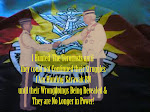Kuching
Sunday, 30th January 2011
Last night a friend to Bukittunggal called informing that PRS strongman Tedwin Ngumbang or Ted as he is popularly call by his closest friends had resigned from PRS.
Tedwin, who is ‘special adviser’ to party president James Masing, said :
Tedwin's Resignation Will Affect PRS Strength
But will Tedwin resignation affect the PRS strength? A friend to Bukittunggal also informed that Ted has joined SNAP. He made the official announcement to SNAP President Edwin Dundang after a SNAP symposium in Sibu recently.
In expressed his intention to SNAP President, Ted said said:
Who is Tedwin Ngumbang (or Ted)

Sunday, 30th January 2011
Last night a friend to Bukittunggal called informing that PRS strongman Tedwin Ngumbang or Ted as he is popularly call by his closest friends had resigned from PRS.
Tedwin, who is ‘special adviser’ to party president James Masing, said :
Taib ‘consistenty ignored’ Masing’s requests and demands which were in the interest of the Dayak community has compelled me to resign. I am uncomfortable to see PRS being bullied and ignored by Taib.
What the PRS president asks in the name and interest of Dayaks in letters to Taib, the chief minister does not reply. He just ignores them.Tedwin is not the first leader from PRS that quits the party due to Taib bullying tactic. In year 2008, another leader Beginda resigned from PRS and joined PKR as he could not cope to see his party being bullied by Taib.
Tedwin's Resignation Will Affect PRS Strength
But will Tedwin resignation affect the PRS strength? A friend to Bukittunggal also informed that Ted has joined SNAP. He made the official announcement to SNAP President Edwin Dundang after a SNAP symposium in Sibu recently.
In expressed his intention to SNAP President, Ted said said:
I cannot stand it anymore. I cannot stand to see how Taib treats PRS and Masing.With Ted joining SNAP many people believe that he will brings his supporters with him. This for sure will affect PRS strength in the coming state election.
Who is Tedwin Ngumbang (or Ted)
Ted was one of those responsible for the formation of PRS during the leadership crisis of Parti Bansa Dayak Sarawak (PBDS) which led to its deregistration on Oct 21, 2004.
At the same time PRS was registered, claiming to replace PBDS.
And in the crisis of the newly formed PRS, Tedewin also played a leading role which led to the expulsion of Larry Sng from the party in April in 2009.
Commenting on Ted’s resignation, PRS secretary general Wilfred Nissom said that he expected to receive the former’s resignation letter this Monday.
Tedewin (Ngumbang) has a cause for which he has a strong feeling. We respect his decision to want to leave PRS in order to pursue his cause,” Nissom said.Jabu Beware Ted Will be Challenging You ?
With his resignation from PRS (A BN Component party) it is clear to me that he will be challenging Jabu in the coming state election, and if this happen Jabu political career is about to end.
Ted is going to be the strongest opponent that Jabu is ever going to face in the election. With so many issues surrounding him such as the NCR Land Robbery , Cronyism etc, this time round Jabu political career is going to BeeNd......
Hopefully with people like Tedwin Ngumbang joining SNAP will rejuvenate the party strength to its level as it was in the 80s...











































